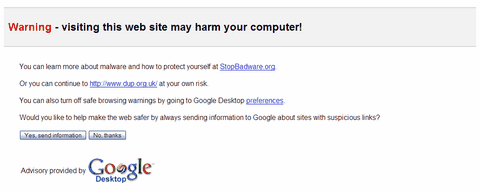RSS is my answer to everything. So simple, so straightforward, so flexible. Yet, as I’ve mentioned here before, I’m amazed how few government web sites – especially new ones – offer feeds. The number using RSS feeds to pull content in, of course, is even smaller. A few months back, I asked readers how many had websites which could import content via RSS. The results were depressingly predictable (or should that be predictably depressing?).
If it’s something you’d like to add to your site, Google might well have a solution. They’ve made available a ‘feed API’, based on simple Javascript, to pull headlines together from any RSS feeds (yes, plural) you specify, and turn them into HTML for inclusion in your pages. You can have a conventional one-line ticker, or a vertical presentation: in an aggregated list, or divided by source. Adding a live view of the latest headlines from any given (RSS-enabled) site just became as easy as copy-and-paste… assuming your CMS is OK about you entering Javascript.
Of course Google’s far from the first to do this… but I’ve never seen a similar service with the same big-name, long-term backing. The code looks relatively simple to hack if you need to, and you should be able to dress it up in the host site’s font/colours using basic CSS. Plus, the Google ‘widgets’ are really neat, with hover effects and animations built in. It’s far from ‘industrial strength’, but it might well be enough for smaller projects.
 A big day for the Guardian today, as the new community-enabled
A big day for the Guardian today, as the new community-enabled 
 I blame the Tories. They brought us ‘
I blame the Tories. They brought us ‘